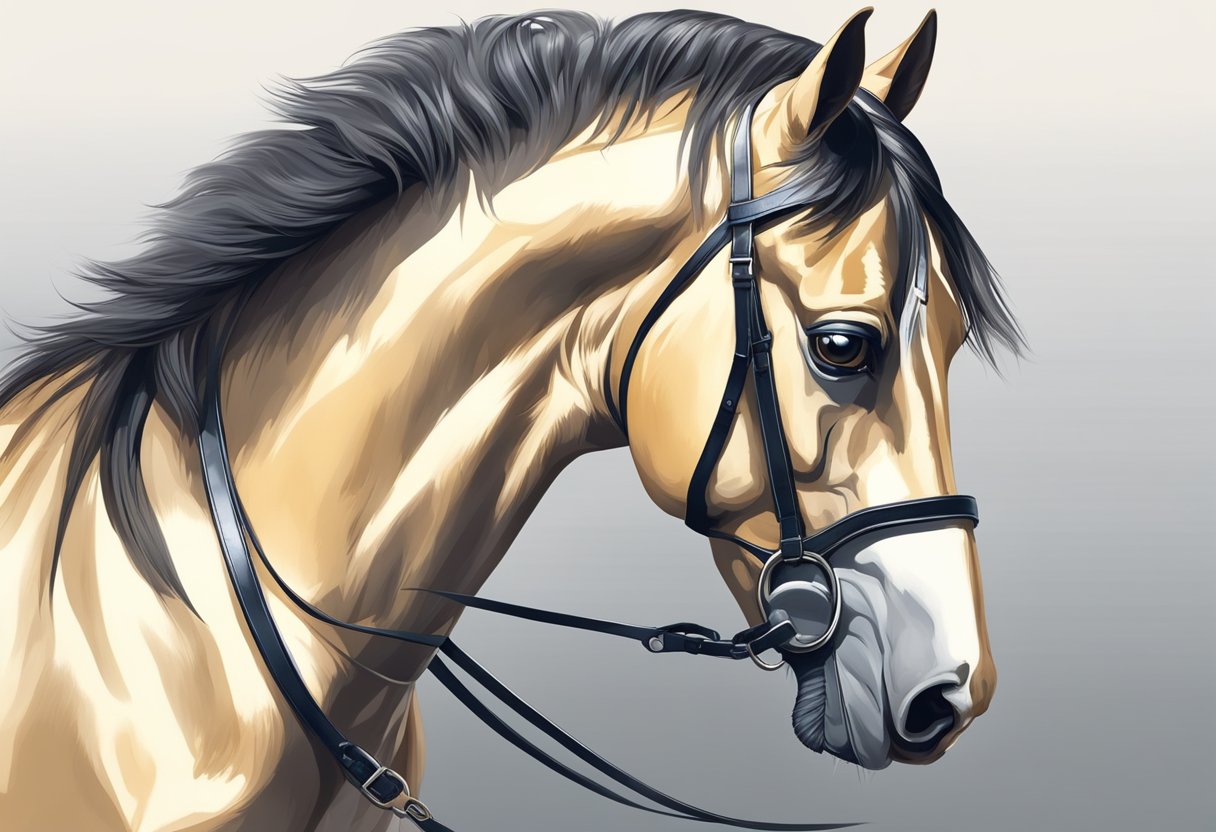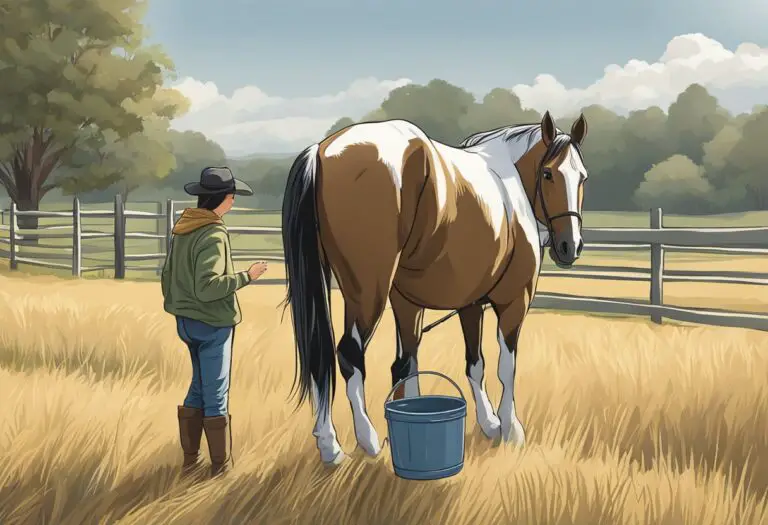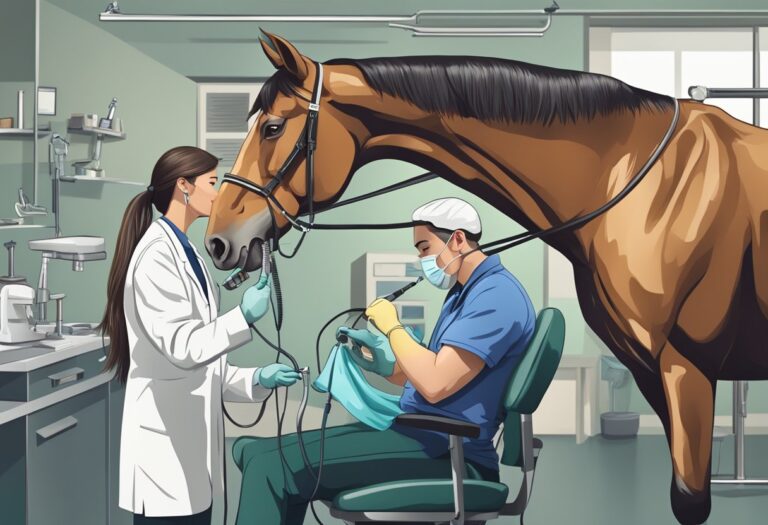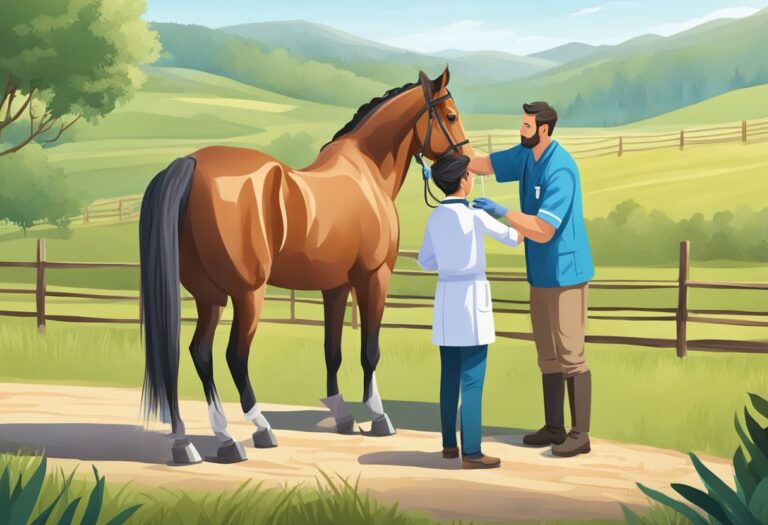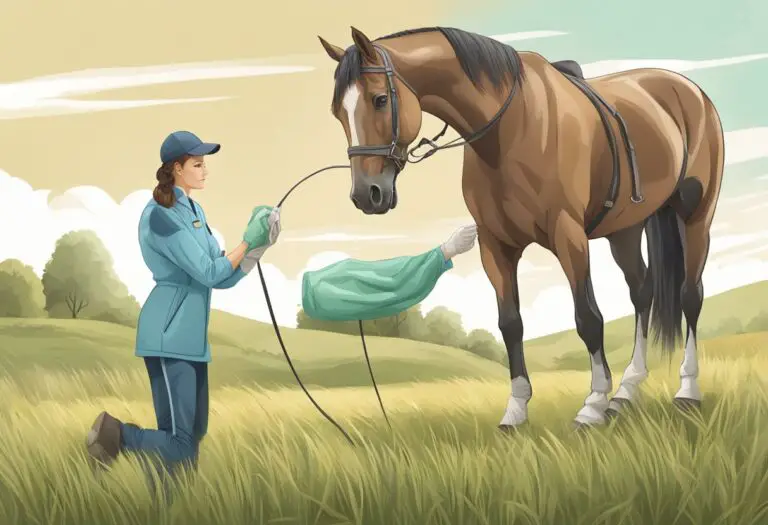What Are the Signs of Good Horse Health? A Comprehensive Guide
Good horse health is essential for a happy and productive equine. As a horse owner, it is crucial to understand the signs of good health and to be able to recognize when something is not quite right. Keeping an eye on your horse’s overall well-being can help prevent serious health issues and ensure that your horse is comfortable and content.
One of the most obvious signs of good horse health is a shiny, well-groomed coat. A healthy horse will have a smooth, glossy coat that is free from dandruff, skin irritations, and other blemishes. Additionally, a healthy horse will have bright, clear eyes that are free from discharge or cloudiness. A horse’s ears should be alert and attentive, and their nostrils should be clean and free from discharge. A healthy horse will also have a good appetite and will be eager to eat and drink.
Overall Appearance

A horse’s overall appearance is a good indicator of its health. A healthy horse should have a bright and alert appearance. Here are some key indicators to look for:
Bright Eyes
A horse’s eyes should be bright, clear, and alert. The pupils should be of equal size and react quickly to changes in light. Discharge or cloudiness in the eyes can be a sign of infection or injury. If a horse is squinting or rubbing its eyes, it may be suffering from irritation or pain.
Healthy Coat
A horse’s coat should be shiny and smooth. It should lie flat against the body and have a healthy sheen. A dull, patchy, or rough coat can be a sign of poor nutrition or illness. The skin should be clean and free of bumps, scabs, or sores. A healthy coat is a good indicator of a healthy horse.
Overall, a horse’s appearance is a good indicator of its health. By paying attention to the eyes and coat, you can get a good idea of a horse’s overall well-being.
Behavioral Indicators

Alertness
A horse’s level of alertness is an important indicator of their health. A healthy horse should be alert and aware of their surroundings. They should be responsive to stimuli such as sounds, movement, and touch. A horse that is lethargic or unresponsive may be experiencing health problems.
Some signs of alertness in a horse include:
- Ears pointed forward
- Eyes bright and attentive
- Head held high
- Responsive to touch and sound
If a horse is displaying signs of lethargy or unresponsiveness, it is important to consult with a veterinarian to determine the cause.
Appetite
A healthy horse should have a good appetite and maintain a healthy weight. A lack of appetite or sudden weight loss can be an indicator of health problems.
Signs of a healthy appetite in a horse include:
- Eating regularly and eagerly
- Drinking water regularly
- Maintaining a healthy weight
- No signs of discomfort while eating
If a horse is displaying a lack of appetite or sudden weight loss, it is important to consult with a veterinarian to determine the cause.
Physical Health Checks

Vital Signs
Checking a horse’s vital signs is an essential part of determining their overall health. The following are the vital signs that should be checked:
- Temperature: A horse’s normal body temperature ranges from 99°F to 101°F. Any temperature above or below this range could indicate an underlying health issue.
- Pulse: A horse’s resting heart rate should be between 28 and 44 beats per minute. A higher or lower pulse rate could indicate a problem.
- Respiration: A horse’s normal respiratory rate is between 8 and 16 breaths per minute. Anything outside of this range could be a sign of respiratory distress.
In addition to checking the vital signs, it’s important to observe the horse’s behavior and overall appearance. A healthy horse should be alert, have bright eyes, and a shiny coat.
Body Condition Scoring
Body condition scoring is a way to assess a horse’s overall body condition, including their weight and muscle mass. The following are the body condition scores that are used:
- 1-3: Emaciated to thin. The horse’s ribs, spine, and hip bones are visible.
- 4-6: Moderate. The horse’s ribs are not visible, but can be felt. The horse has a slight fat covering over their spine and hip bones.
- 7-9: Obese. The horse has a significant fat covering over their spine and hip bones.
It’s important to maintain a healthy body condition score for your horse. Being underweight or overweight can lead to health problems such as laminitis, colic, and joint issues.
By regularly checking a horse’s vital signs and body condition score, you can ensure that they are in good health. Any abnormalities should be addressed promptly by a veterinarian.
Movement and Gait

Horses are known for their grace and beauty, and one of the key indicators of good horse health is their movement and gait. In this section, we will discuss two important aspects of horse movement: fluidity of movement and hoof soundness.
Fluidity of Movement
A healthy horse should move with fluidity and ease. When a horse moves, its stride should be long and smooth, with no signs of stiffness or discomfort. A horse that is experiencing pain or discomfort may move with a shortened stride, or may exhibit a choppy or uneven gait.
To assess a horse’s fluidity of movement, a veterinarian or experienced horse handler may observe the horse as it walks, trots, and runs. They may also examine the horse’s joints and muscles for signs of inflammation or injury.
Hoof Soundness
The health of a horse’s hooves is critical to its overall movement and gait. A horse with healthy hooves will move with confidence and ease, while a horse with hoof problems may experience pain or discomfort while walking or running.
To assess a horse’s hoof soundness, a veterinarian or farrier may examine the hooves for signs of cracks, chips, or other damage. They may also assess the horse’s gait to determine if there are any issues with how the horse is bearing weight on its hooves.
Overall, a horse that moves with fluidity and has healthy hooves is likely to be in good health. Horse owners should pay close attention to their horse’s movement and gait, and should consult with a veterinarian or other equine health professional if they notice any signs of discomfort or lameness.
Digestive Health

Manure Consistency
One of the most important signs of good digestive health in horses is the consistency of their manure. A healthy horse should produce manure that is well-formed and moist, but not too wet or dry. Loose or watery manure can be a sign of digestive upset or infection, while hard, dry manure can indicate dehydration or a lack of fiber in the diet.
It is important to monitor your horse’s manure consistency on a daily basis, and to make note of any changes. If you notice a sudden change in your horse’s manure, it may be an indication of a health problem and you should consult with your veterinarian.
Chewing and Swallowing
Another important aspect of digestive health in horses is their ability to chew and swallow their food properly. Horses that have trouble chewing or swallowing may be at risk of choking, which can be a life-threatening emergency.
It is important to watch your horse while they eat, and to make sure they are chewing their food thoroughly before swallowing. If you notice your horse having difficulty chewing or swallowing, or if they choke while eating, it is important to seek veterinary care immediately.
Overall, monitoring your horse’s digestive health is an important part of keeping them healthy and happy. By paying attention to their manure consistency and their ability to chew and swallow, you can help ensure that your horse stays in good health.

